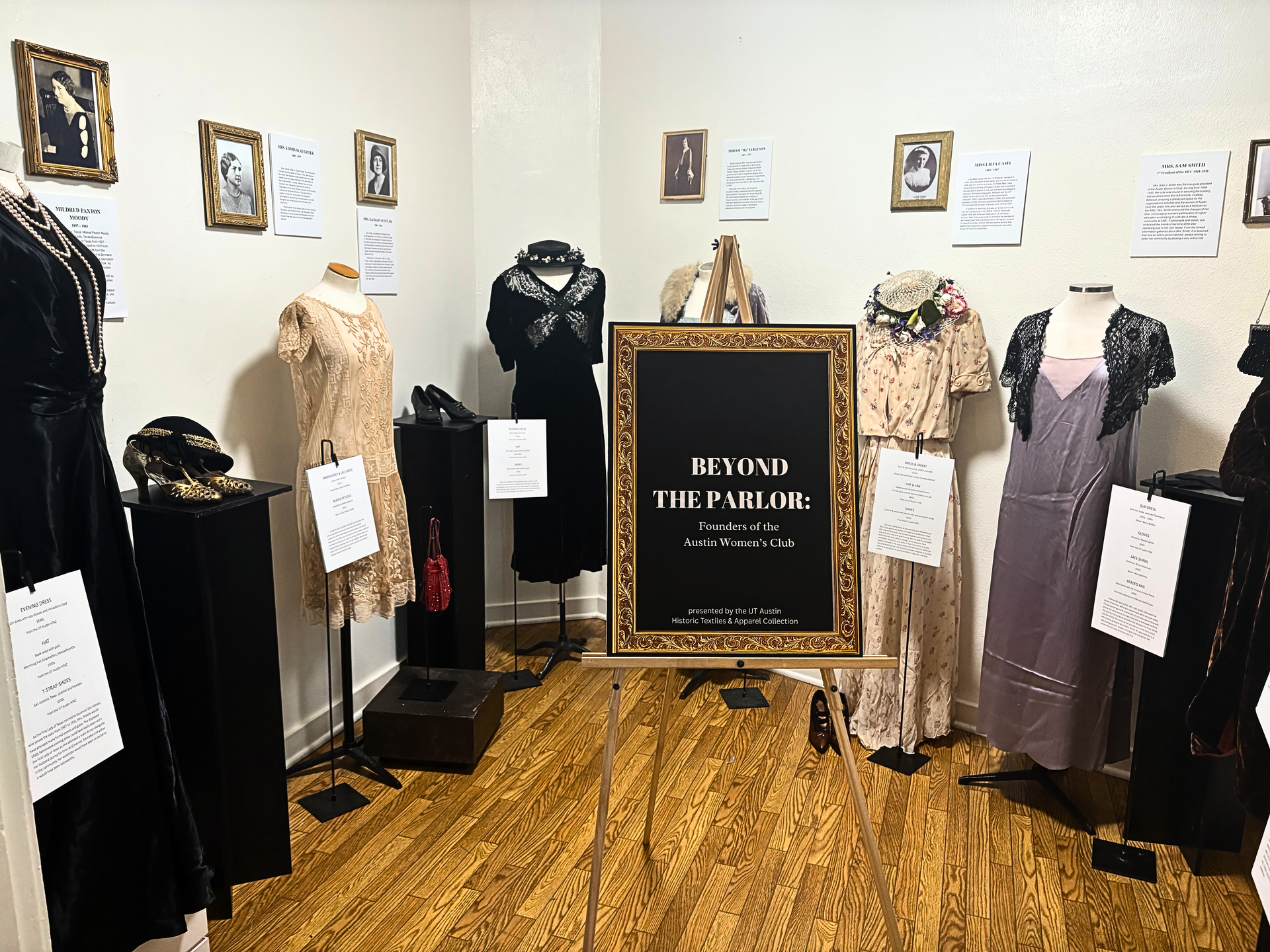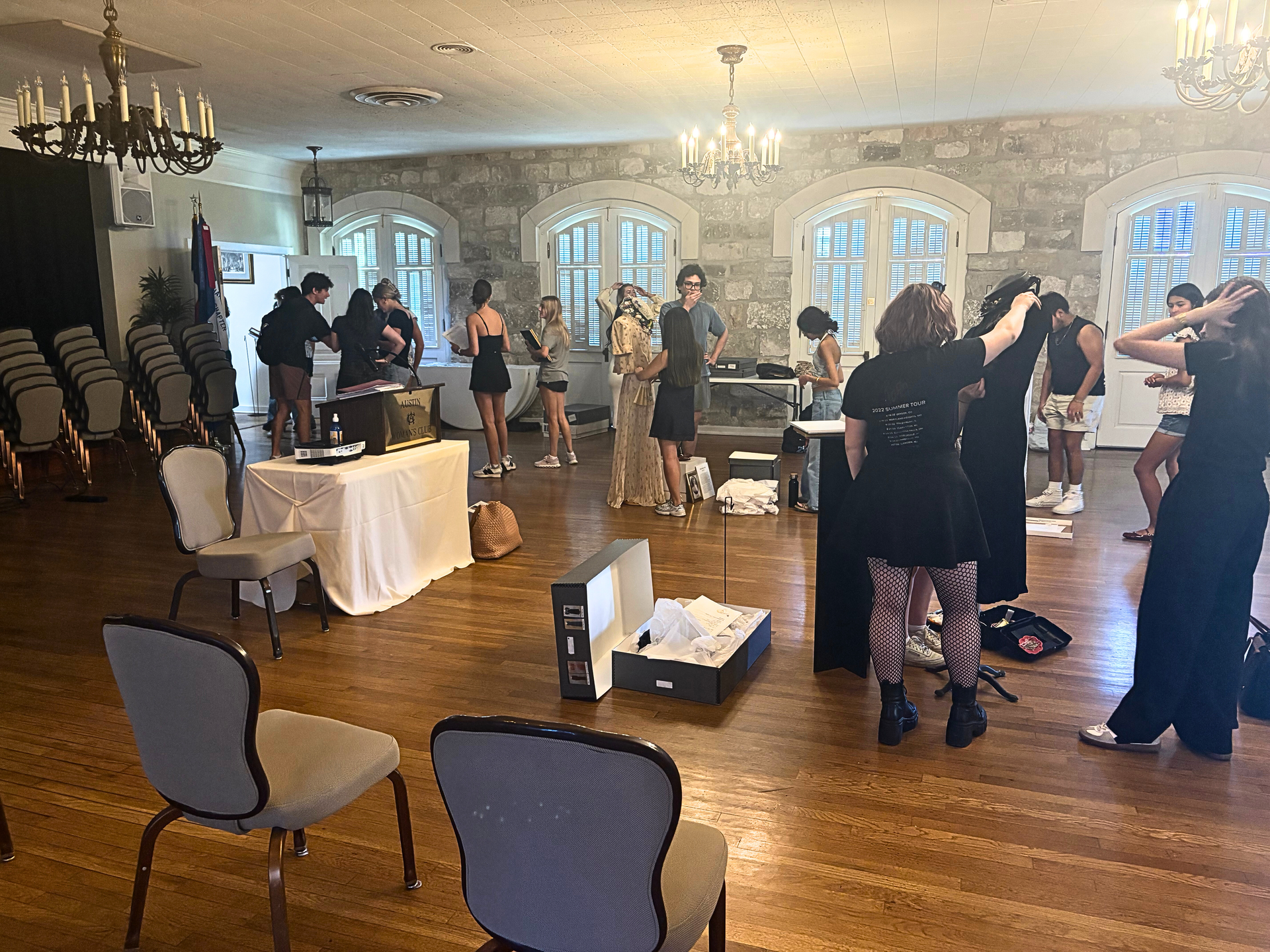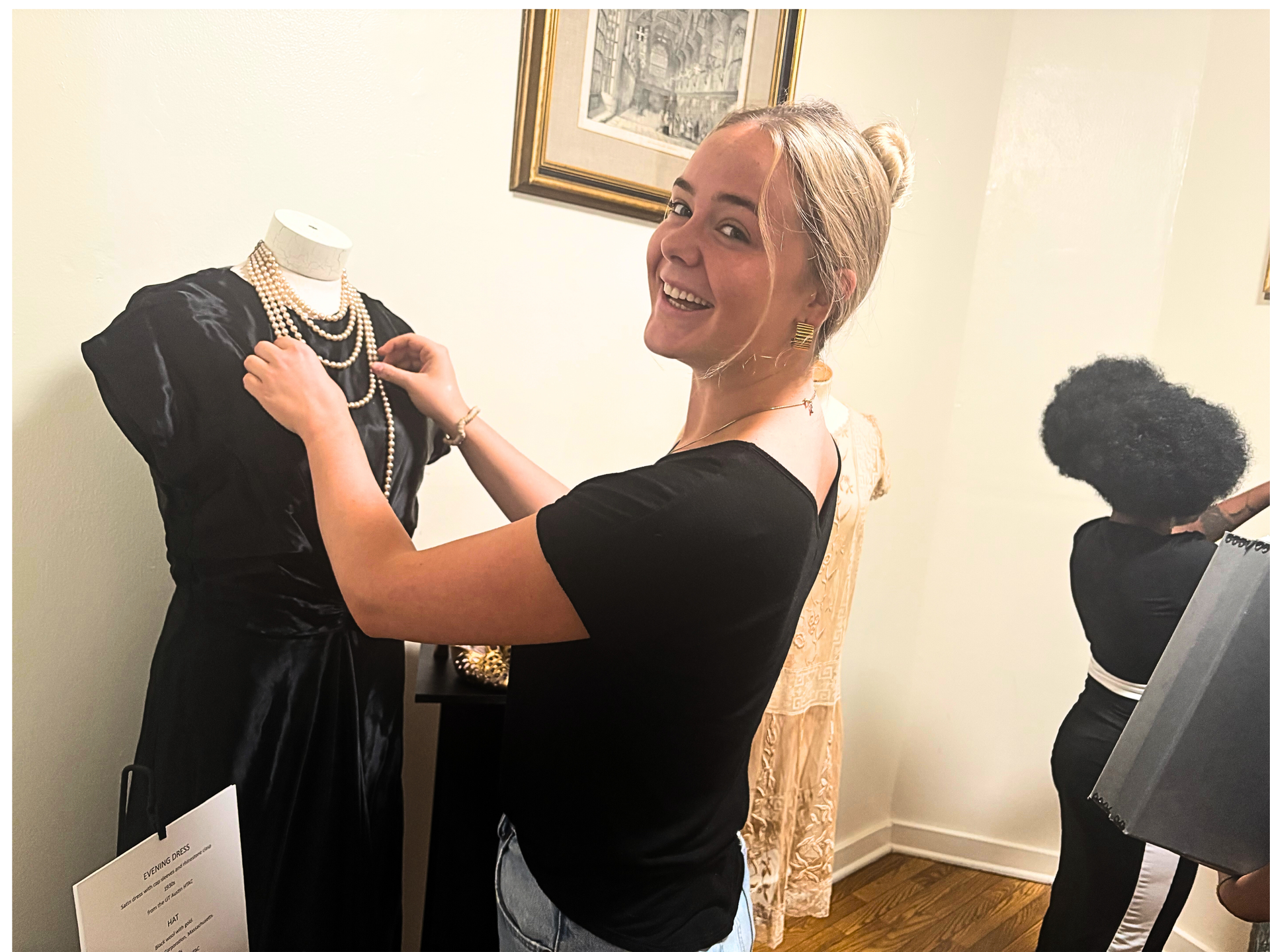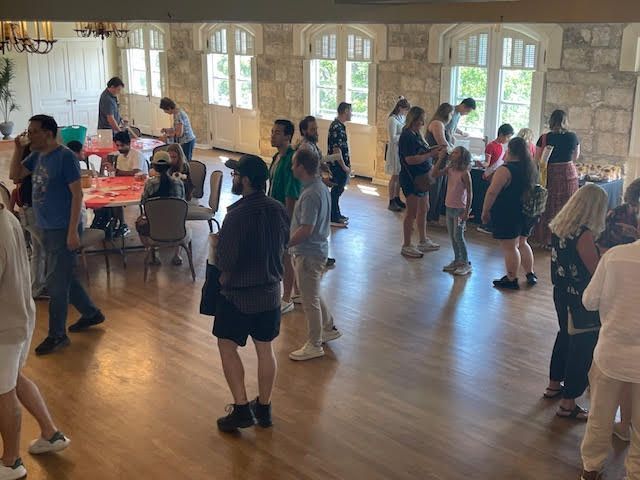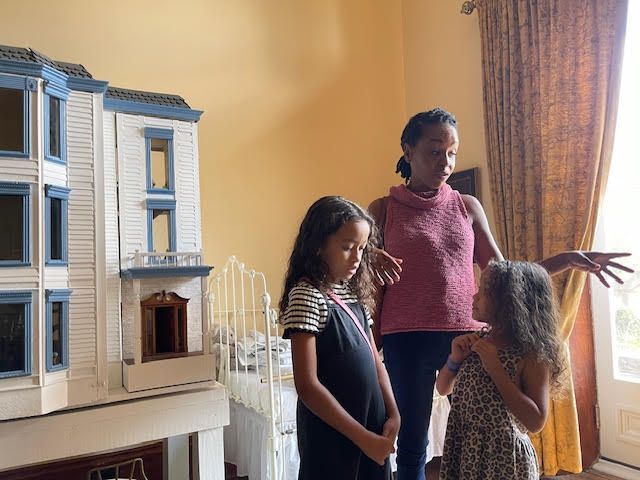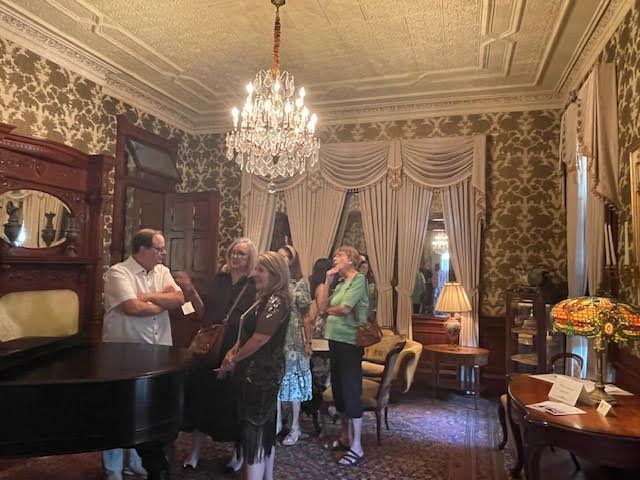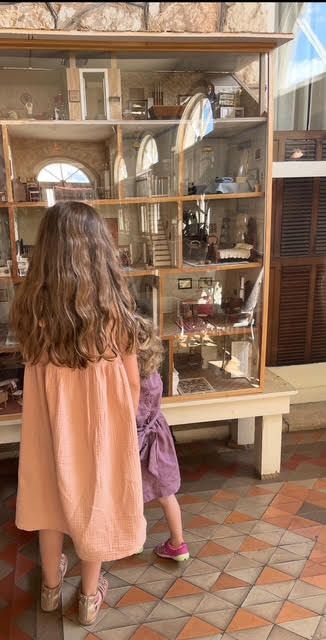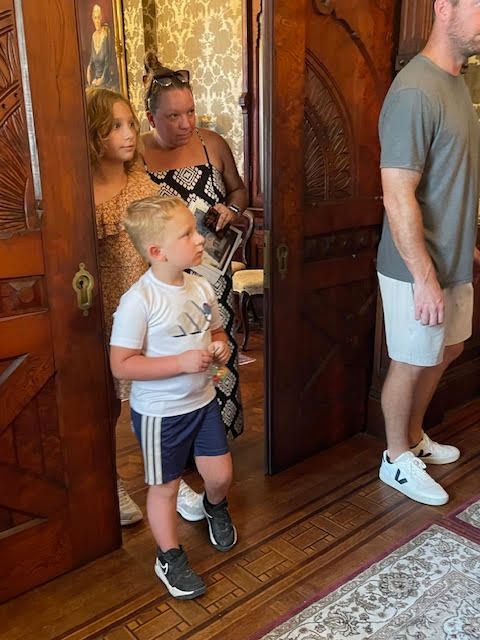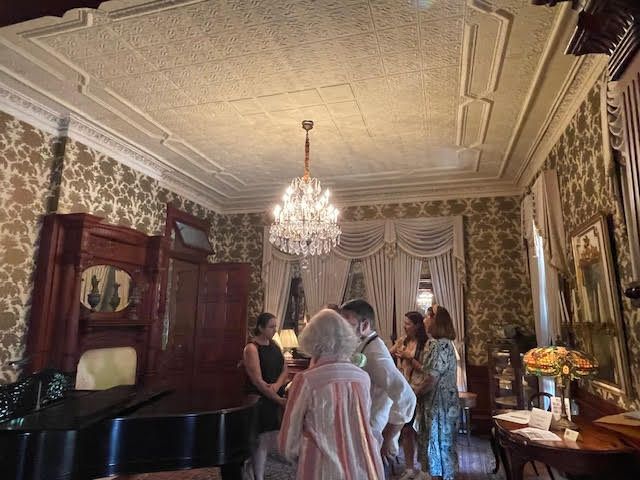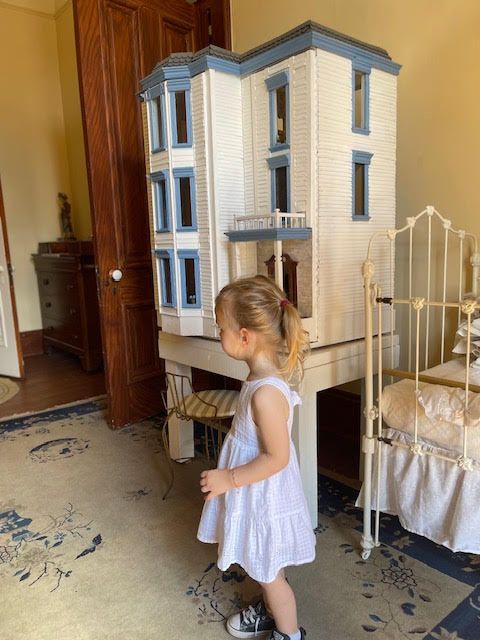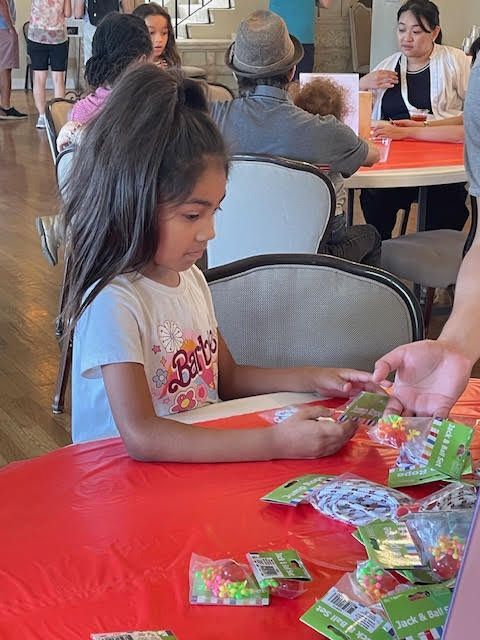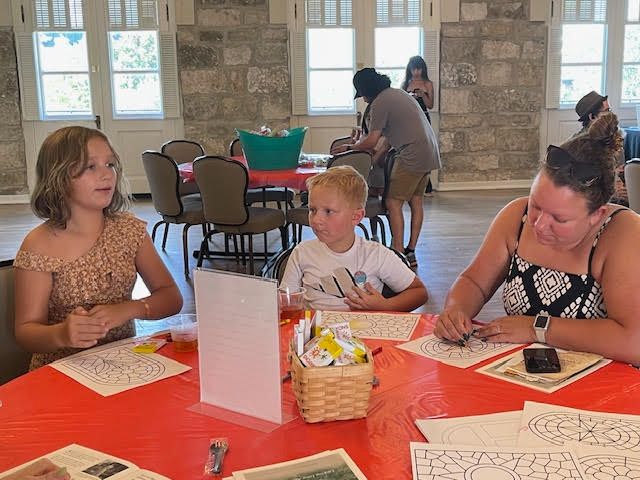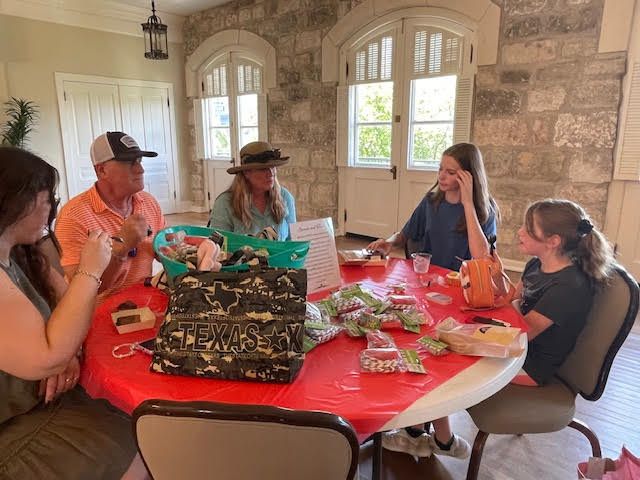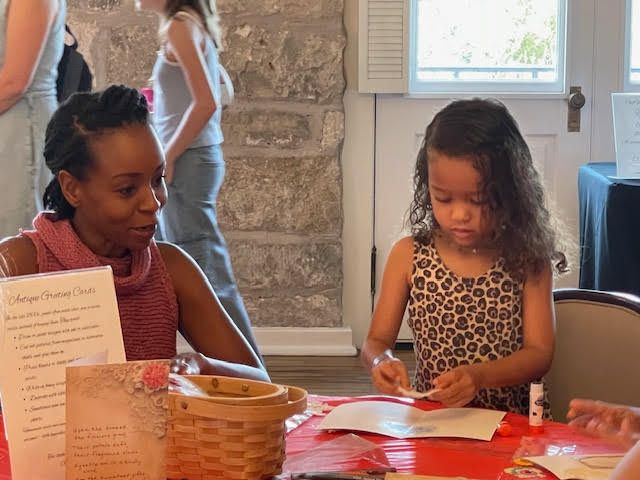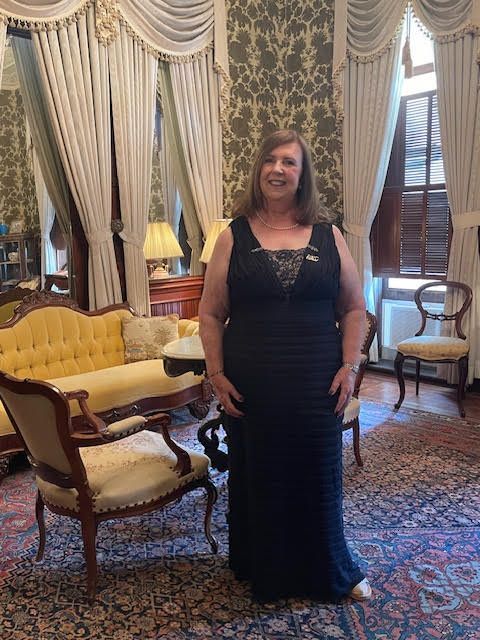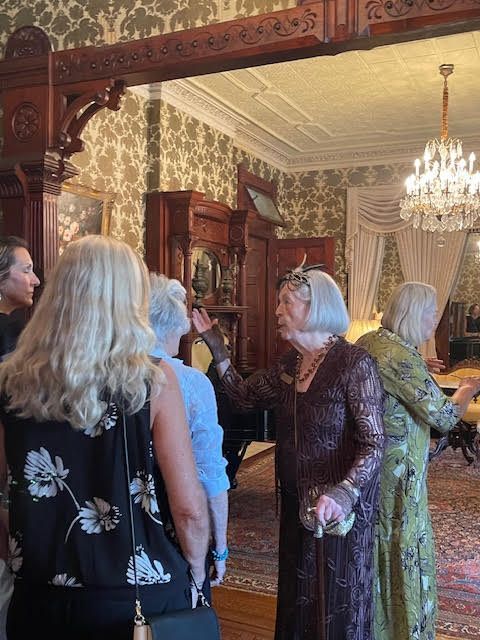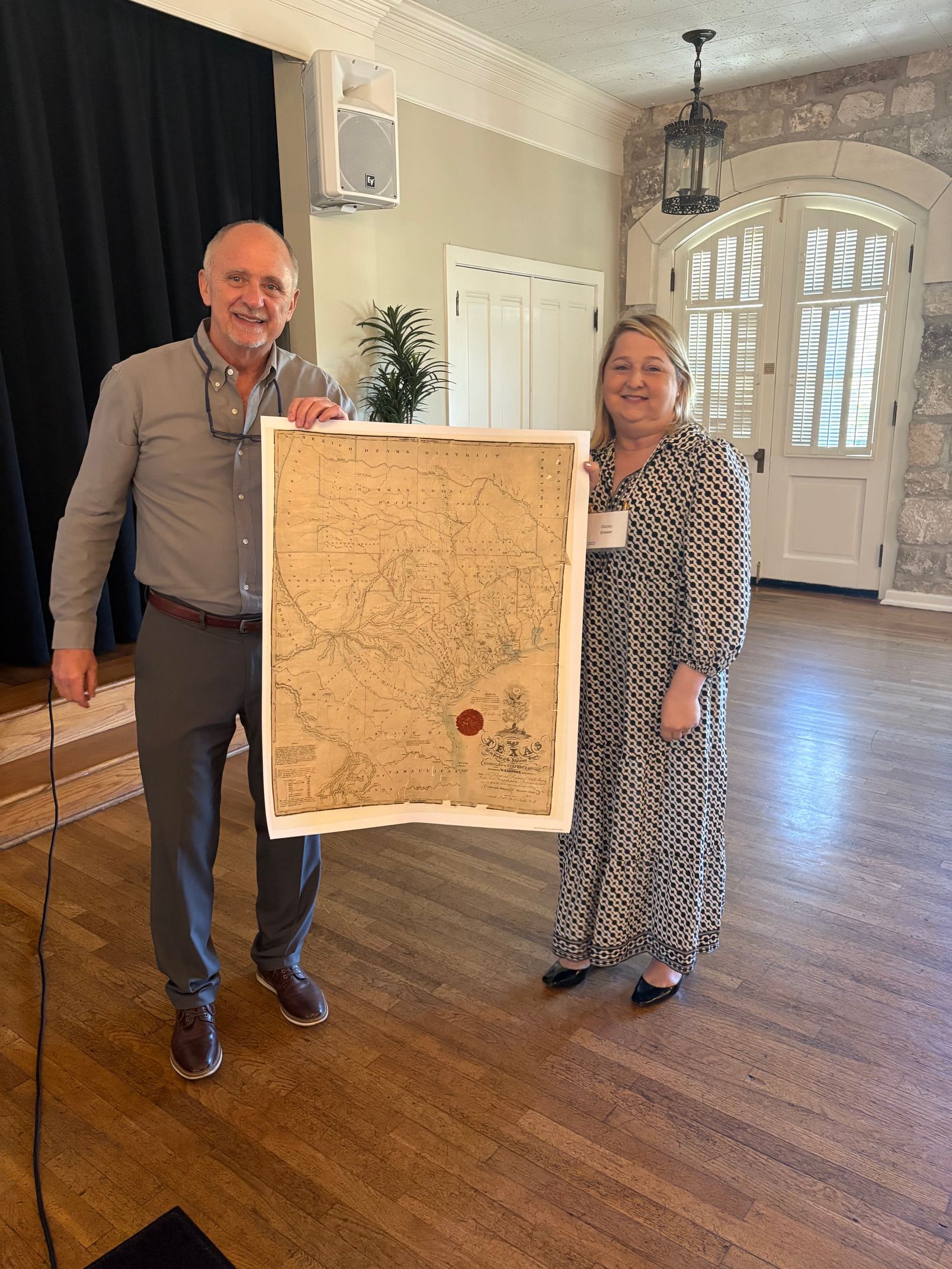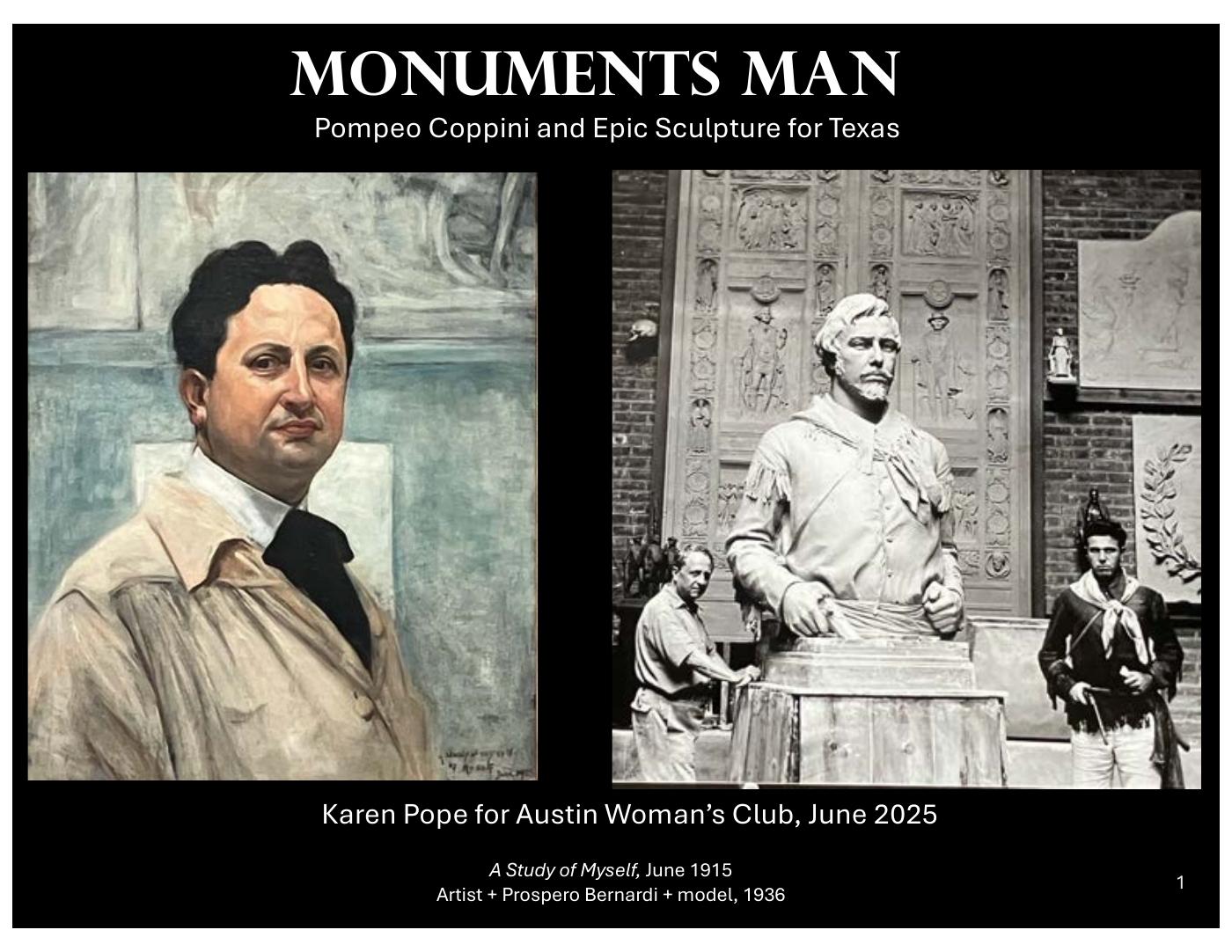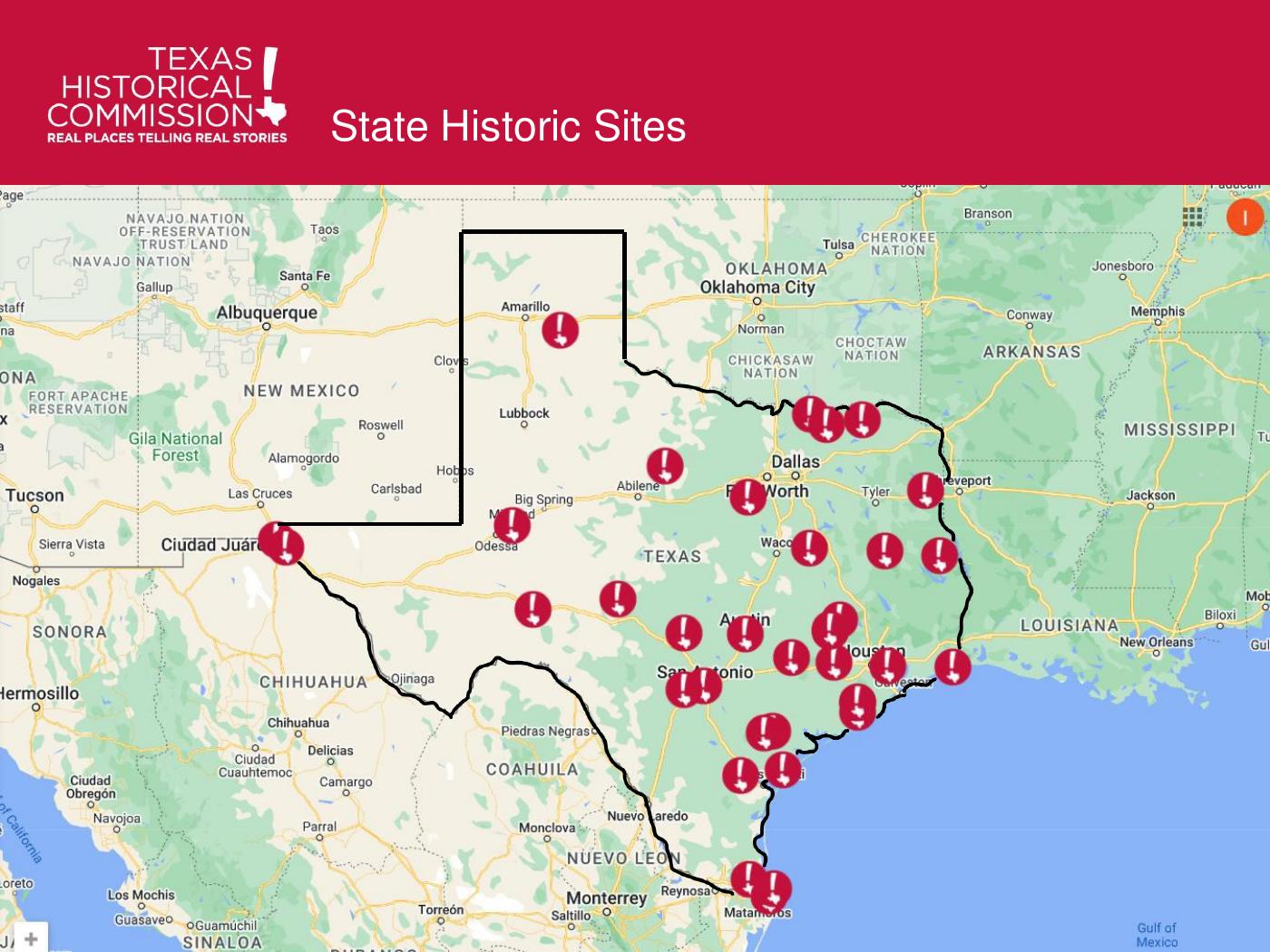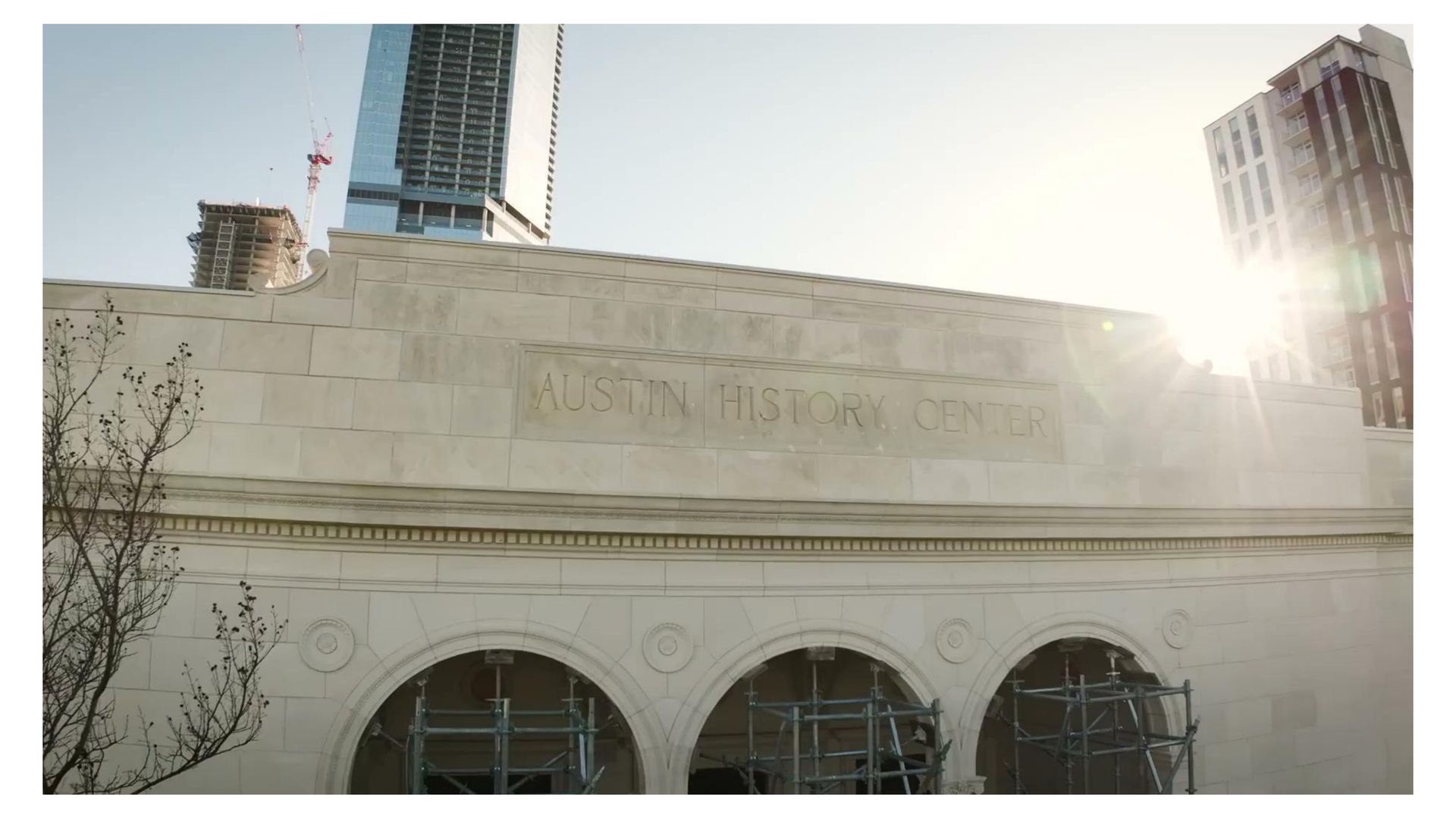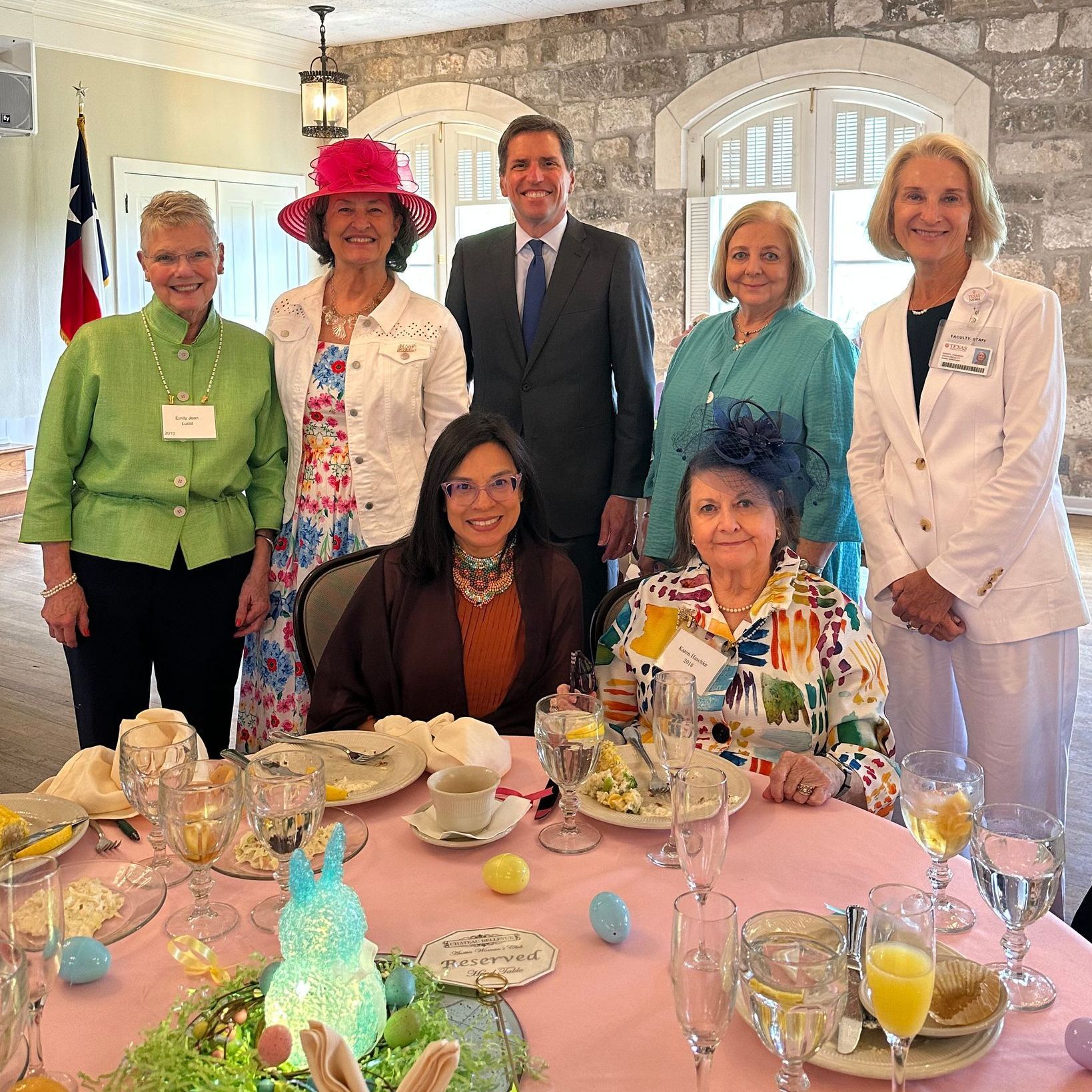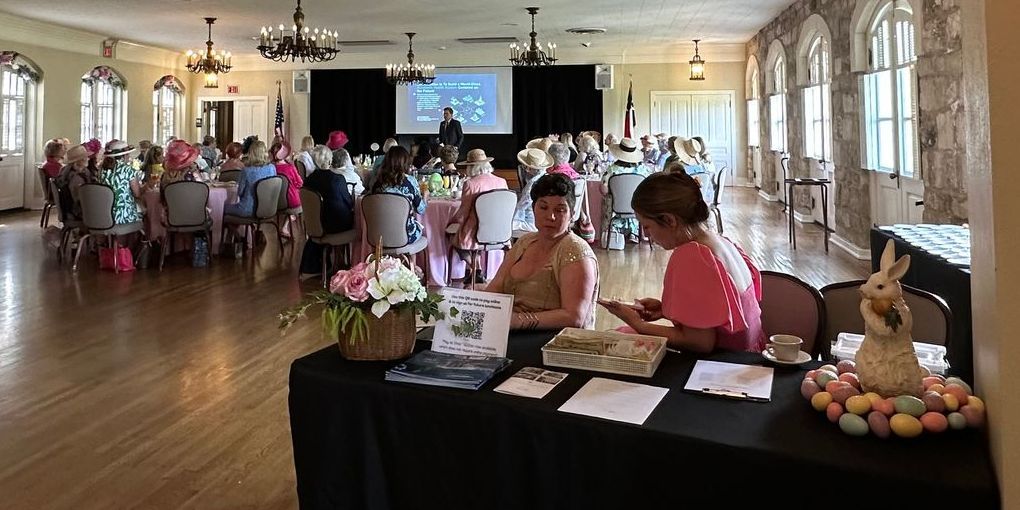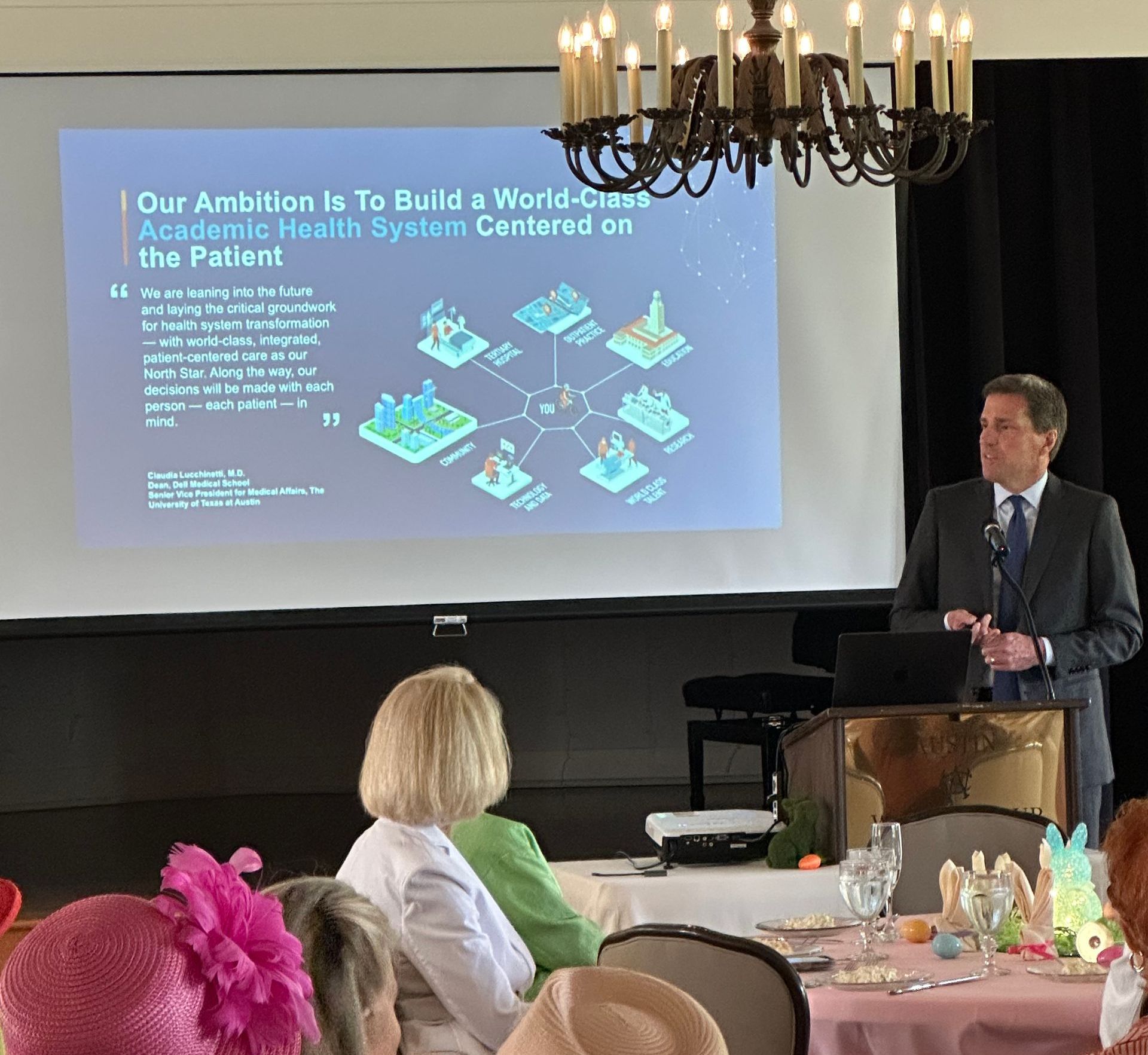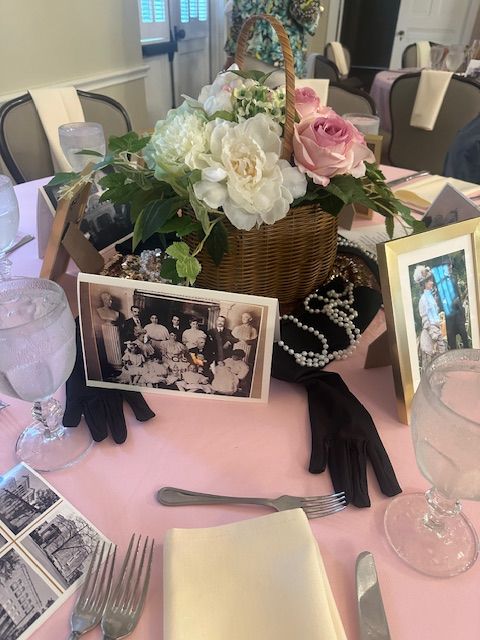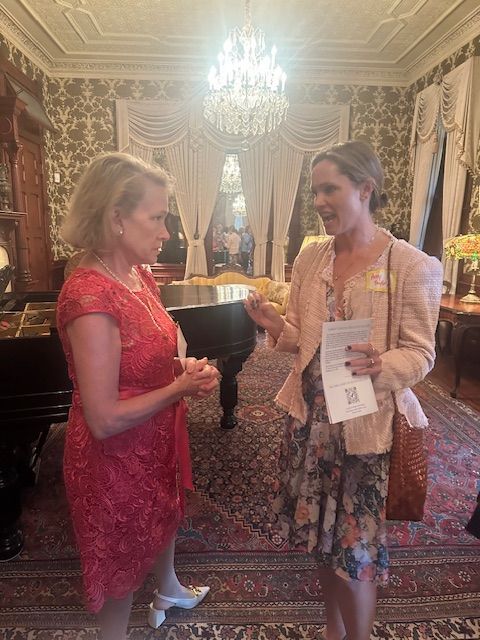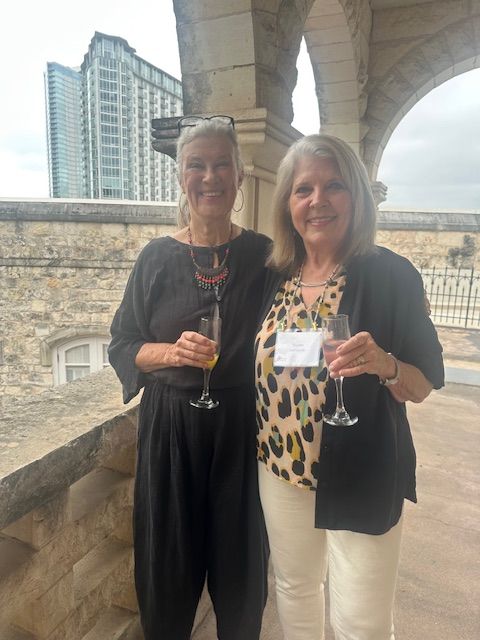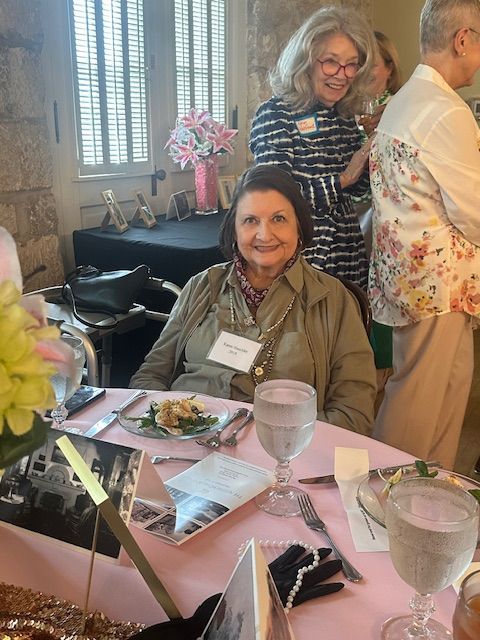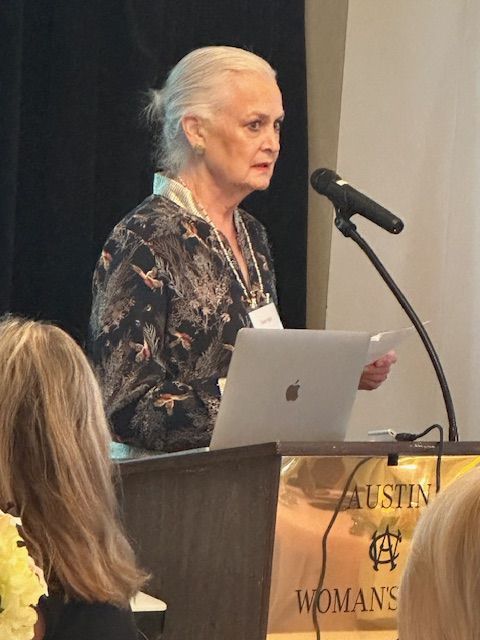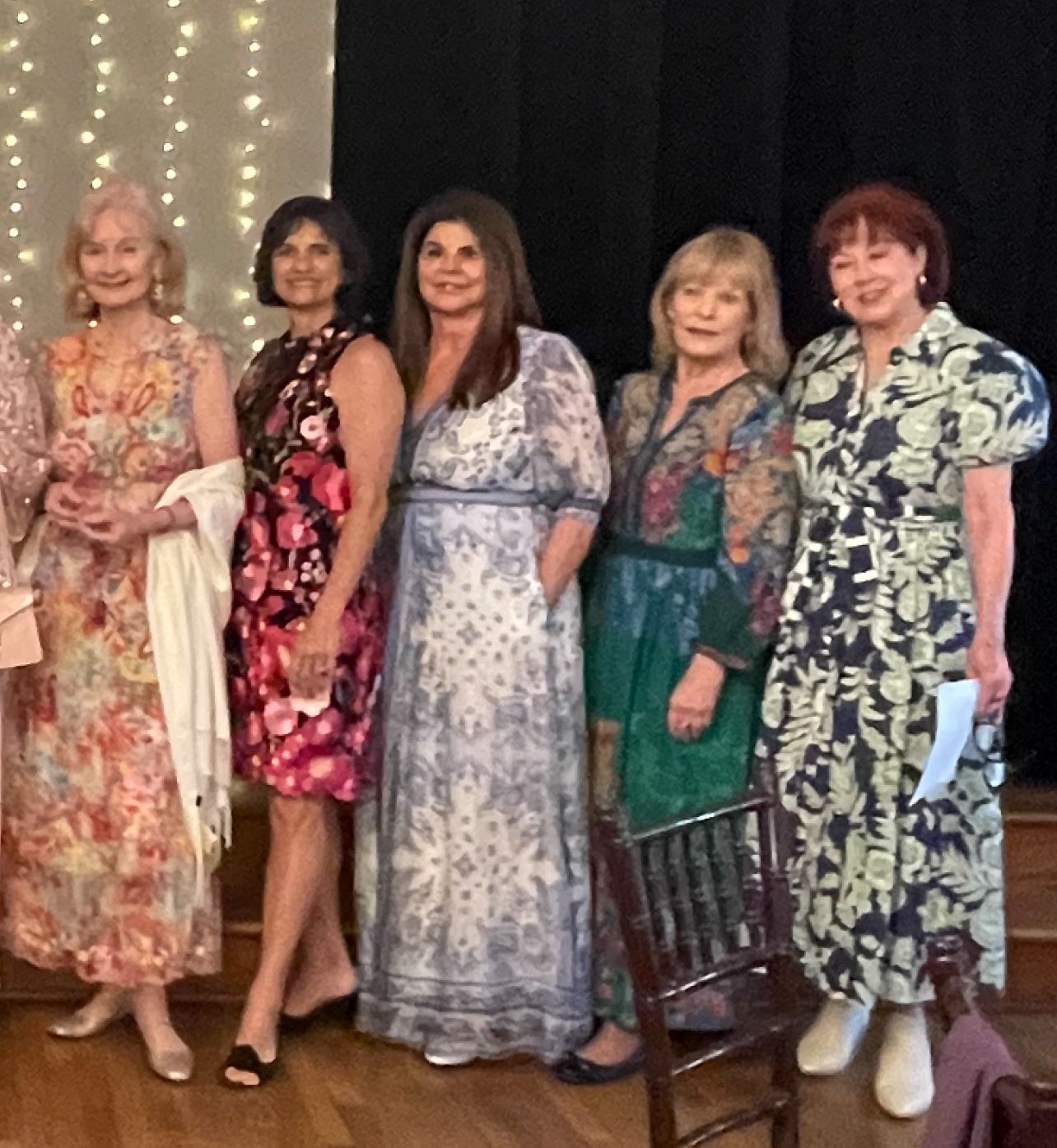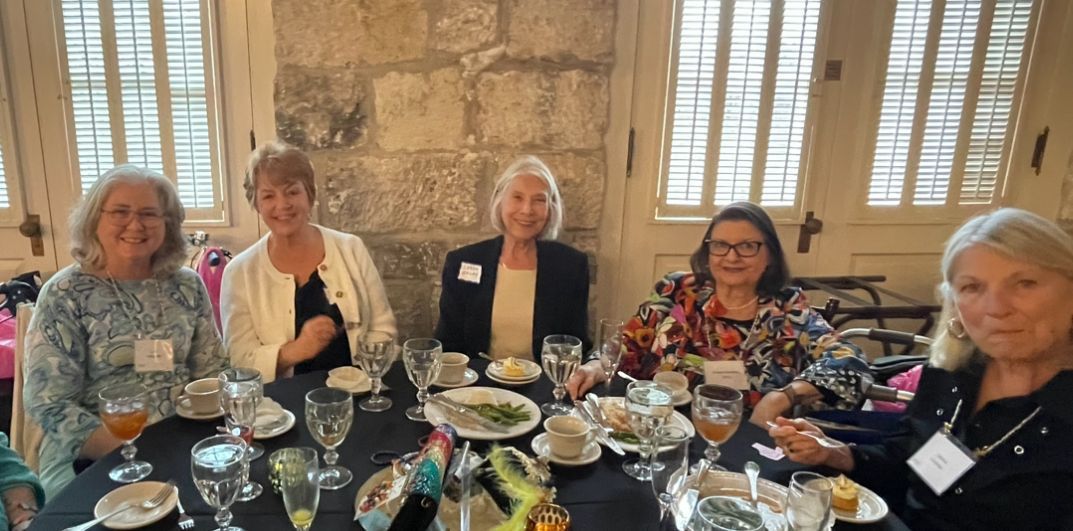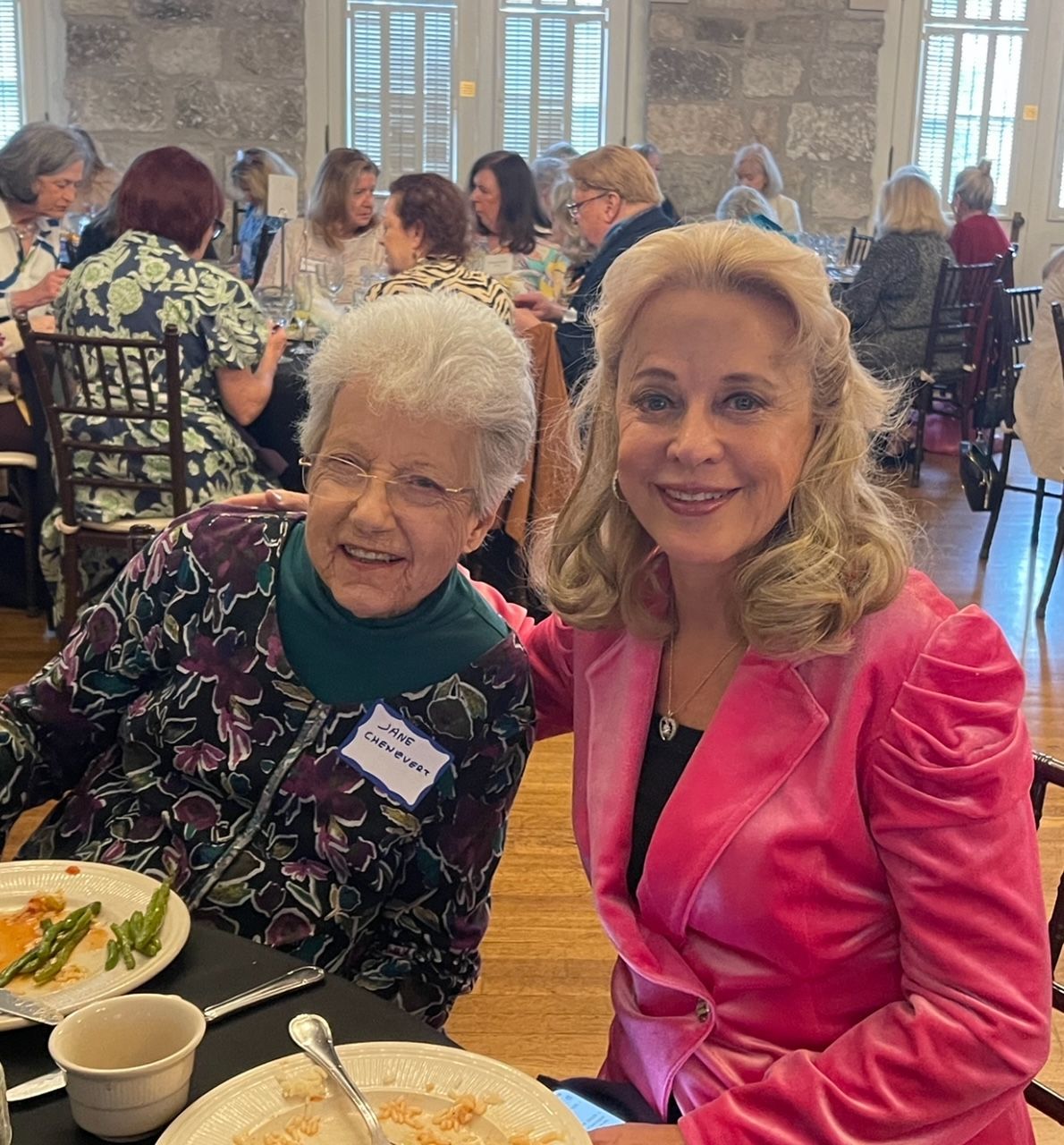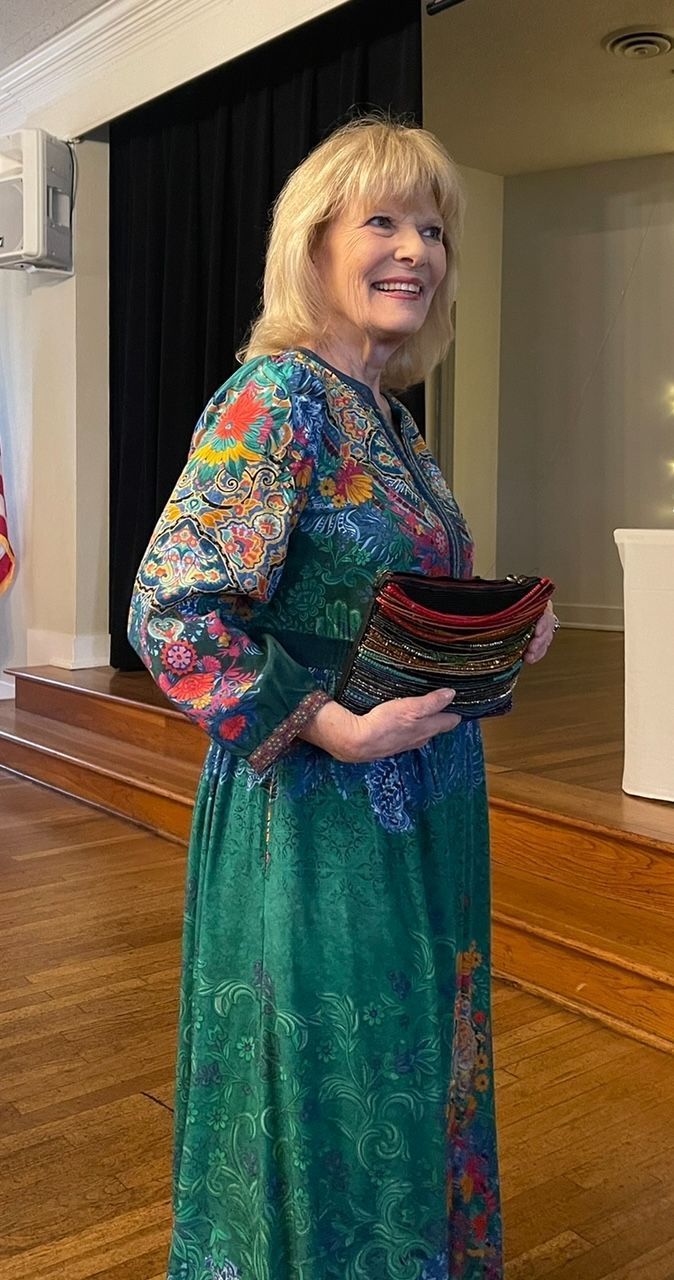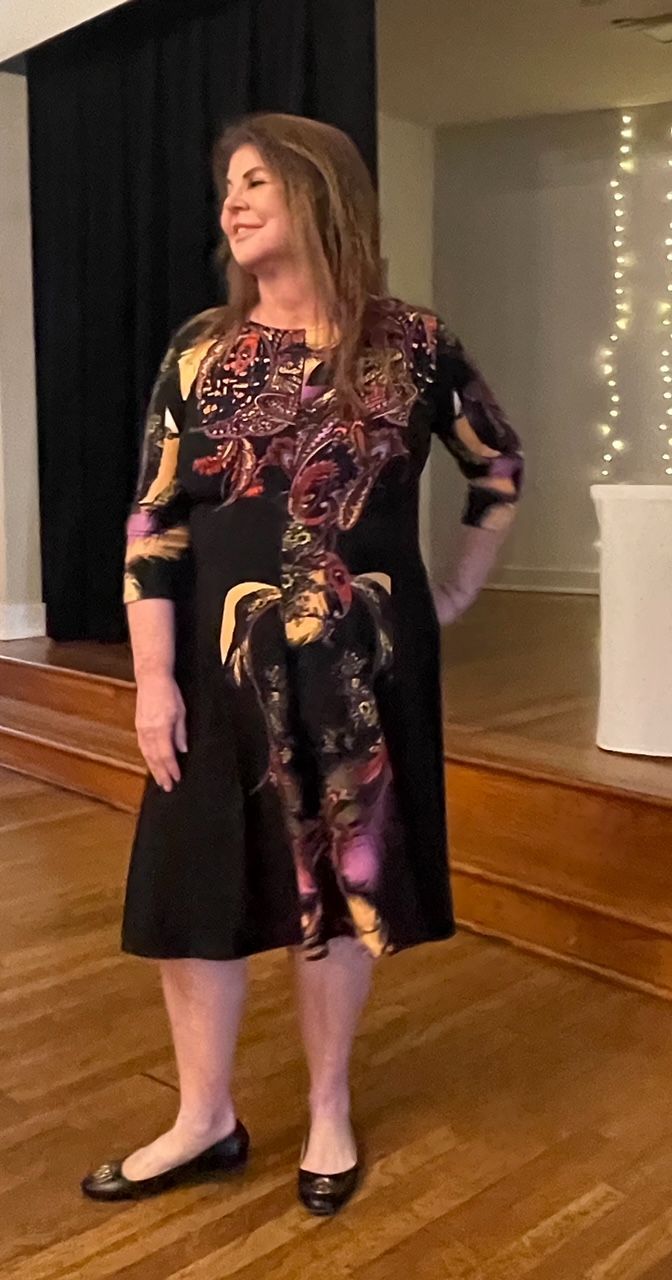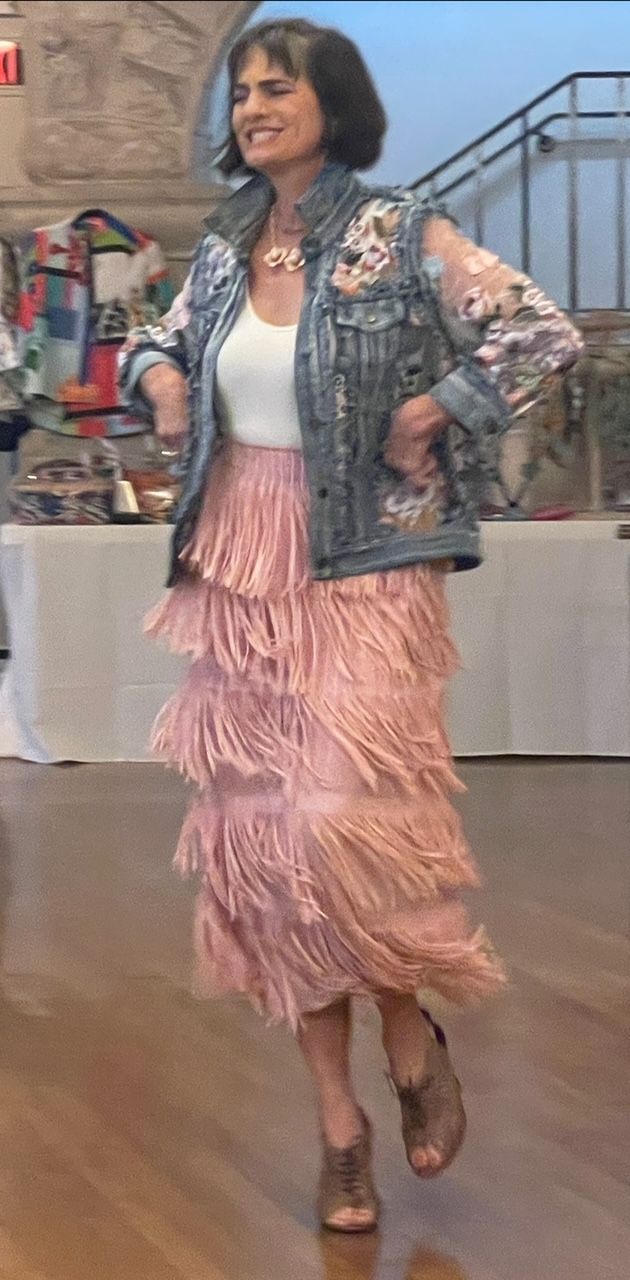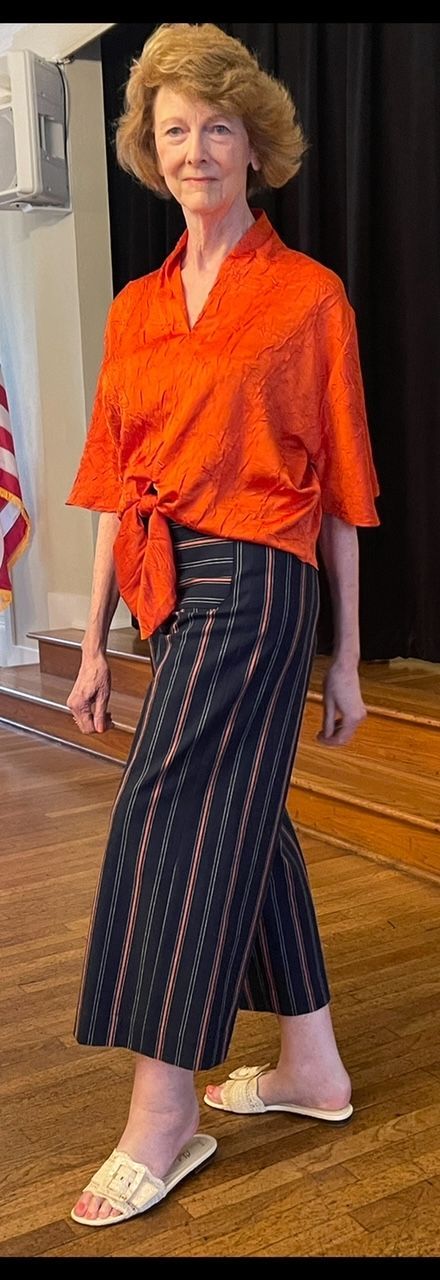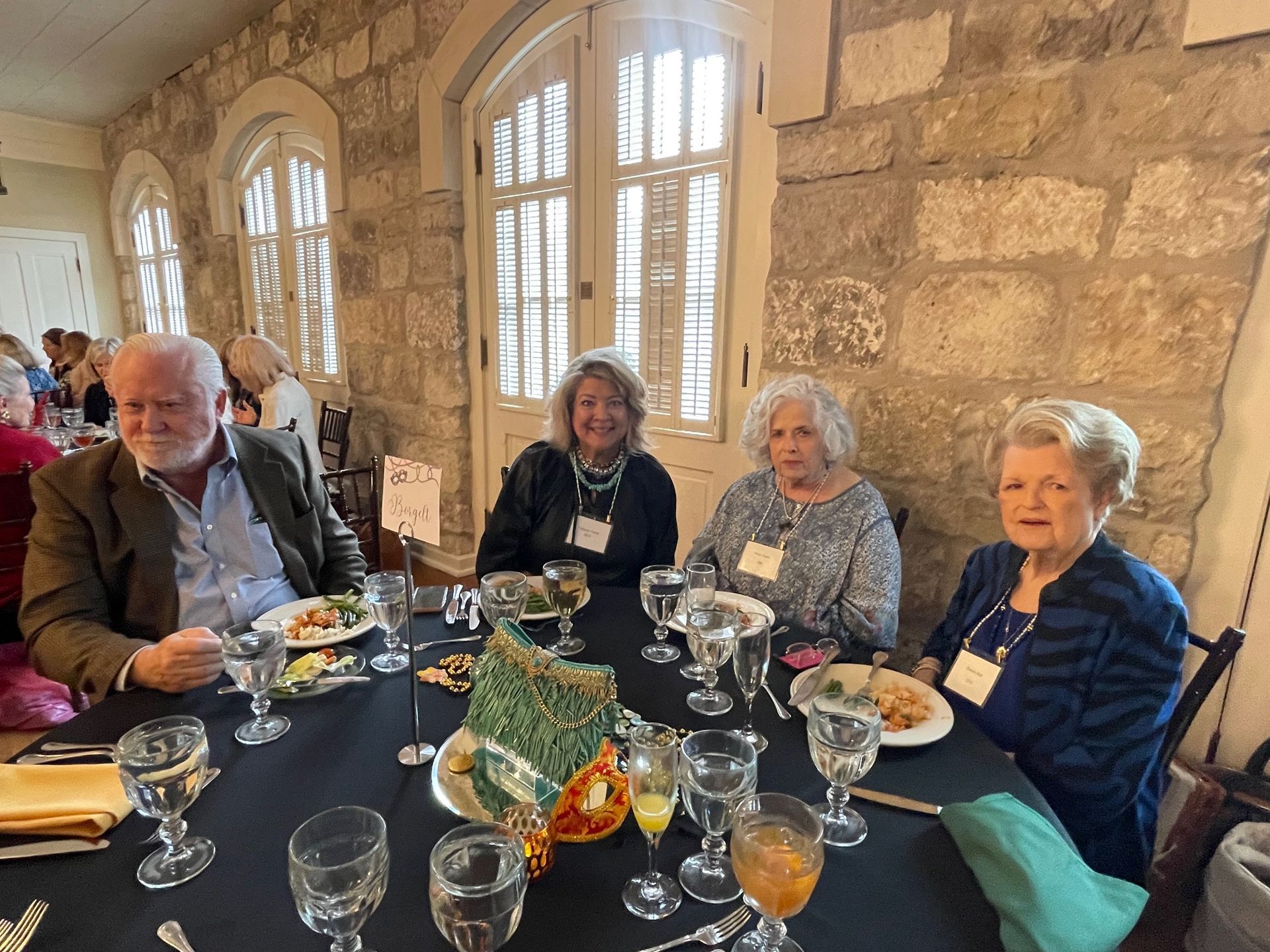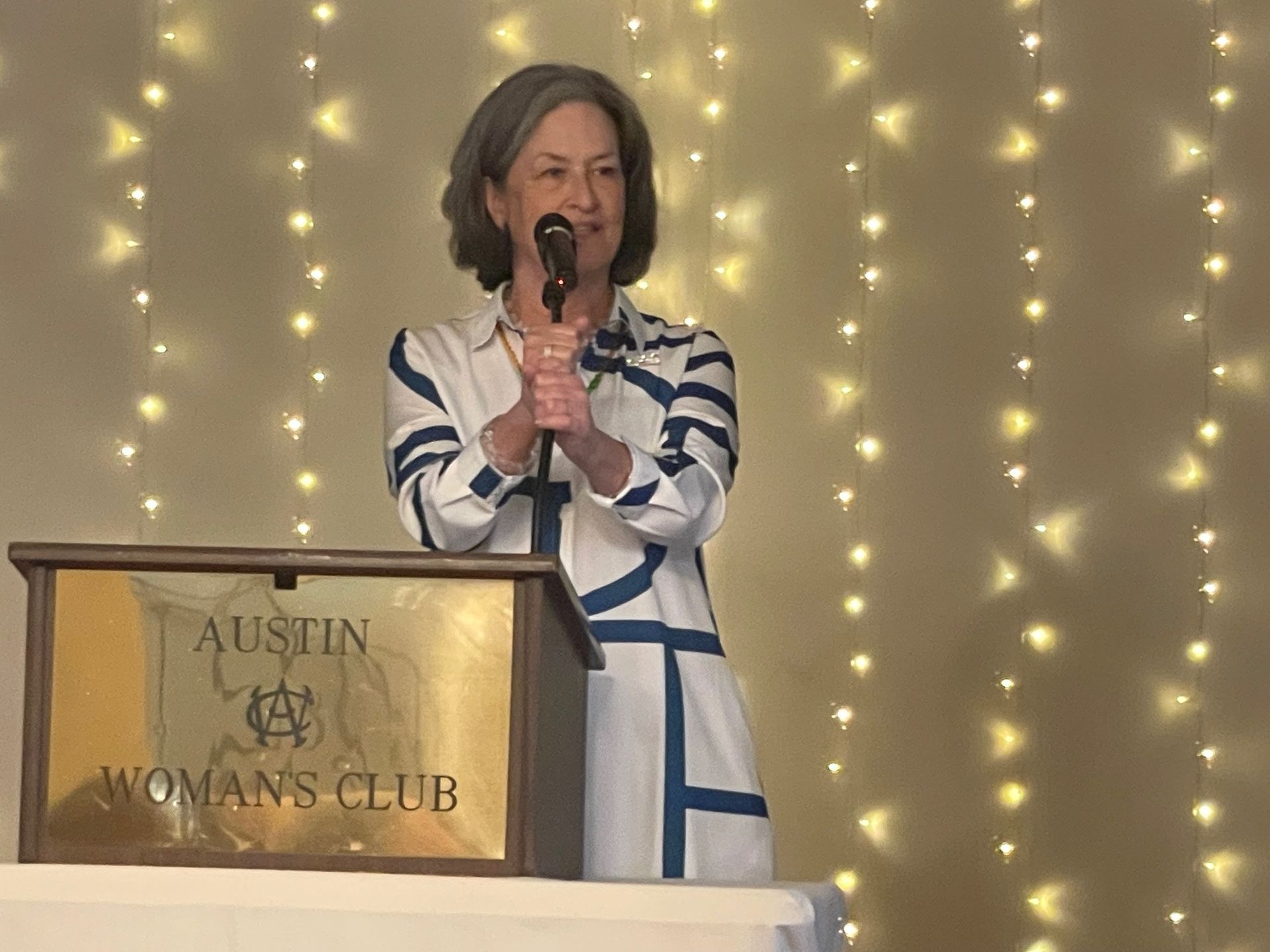Gallery
Enjoy some of the images of the events at the beautiful Chateau Bellevue and the Austin Woman's Club.
November 6, 2025 Past President's Luncheon - Beyond the Parlor: The Founders of the Austin Woman's Club
By Dr. Gail Chovan
See the Slideshow
October 30, 2025 AWC Luncheon and Membership Drive - Nathan Stephens Texas State Cemetery Administrator
October 16, 2025 Robyn Metcalfe and Joy Stoddard - Home Economics and the Muppets
September 21, 2025 Austin Museum Day
August 28, 2025 AWC Luncheon with Sarah Sonner, Briscoe Center for American History, UT Austin - 'History and Fate, The Goodwins and the 1960s'
Exhibit Development: 'History and Fate, The Goodwins and the 1960s'
Sarah Sonner, Briscoe Center for American History, UT Austin
Austin Womans Club, August 28,2025
-----------------------------------------
Sarah G. Sonner, Ph.D., Director for Curation at the Briscoe Center for American History, discusses the development of the exhibit 'History and Fate, The Goodwins and the 1960s.' The exhibit highlights the archives of Doris Kearns Goodwin and Dick Goodwin, focusing on their contributions to political history and the 1960s. Sarah outlines the process of exhibit development, including research, design, and layout, emphasizing the importance of primary sources and visitor engagement. The exhibit features significant historical events, such as JFK and RFK's assassinations, and Dick Goodwin's work on the 'We Shall Overcome' speech. Doris Kearns Goodwin's involvement in the exhibit and her book 'An Unfinished Love Story: A Personal History of the 1960s' provided structure and context. The exhibit is open until December 12th, and Sarah encourages visitors to explore the collections and engage with the historical narratives presented.
Action Points:
• Encourage visitors to explore the exhibit before it closes on December 12th.
• Consider planning future exhibits around significant historical events, such as the nation's 250th anniversary next year.
Key Topics:
Introduction to the Exhibit
• Sarah Sonner introduces the exhibit 'History and Fate, The Goodwins and the 1960s,' highlighting its focus on the archives of Doris Kearns Goodwin and Dick Goodwin. She discusses her role in overseeing the exhibit program and material culture collection at the Briscoe Center for American History.
Exhibit Development Process
• Sarah explains the exhibit development process, including research, interpretation, and design coordination. She emphasizes the use of primary sources and the importance of making collections accessible to the public. The exhibit aims to promote research and highlight new acquisitions.
Content and Themes of the Exhibit
• The exhibit explores the Goodwins' contributions to political history, focusing on the 1960s. It features significant events such as JFK and RFK's assassinations and Dick Goodwin's work on the 'We Shall Overcome' speech. The exhibit also highlights Doris Kearns Goodwin's book and her involvement in the project.
Design and Layout Considerations
• Sarah discusses the design and layout of the exhibit, including the use of large format images and chronological arrangement of objects. She highlights the importance of creating an emotional arc and engaging visitors through thoughtful design choices.
Visitor Engagement and Feedback
• The exhibit aims to engage visitors by providing a comprehensive view of the Goodwins' archives and their historical significance. Doris Kearns Goodwin's feedback was incorporated into the exhibit, ensuring it conveyed the main points of her book. The exhibit has been extended due to its popularity.
August 14, 2025 AWC Luncheon with Elizabeth Henneke, Founder and CEO of Lone Star Justice Alliance
Advocacy and Reform in the Texas Justice System
The content is a detailed narrative by a lawyer who grew up in Huntsville, Texas, and has dedicated her career to justice reform, particularly focusing on youth and juvenile justice. She shares her personal background, growing up in a prison environment, and how it shaped her understanding of justice. The speaker discusses her journey through education, becoming a lawyer, and her work in various high-profile cases. She highlights her current role in an organization focused on justice reform, sharing a poignant story about a young girl named Lacey, a victim of human trafficking, who was unjustly imprisoned. The speaker outlines the organization's efforts in policy advocacy, strategic litigation, and community programs to support individuals like Lacey. She emphasizes the importance of systemic change, citing statistics on recidivism and disconnection rates among youth in Texas. The speaker calls for support and engagement from the audience, highlighting the need for volunteers, financial contributions, and advocacy at the legislative level. She concludes by expressing her passion for justice reform and the potential for Texas to lead in this area.
Action Points:
• Launch a volunteer program for the organization's new opportunity youth work.
• Send the volunteer program link to Susan for distribution.
• Sign up for the organization's newsletter for updates and calls to action.
• Engage with the Texas legislature for advocacy on justice reform.
• Develop a gun violence advocacy campaign starting in the fall.
• Release the new strategic plan for Austin by the end of the year.
Key Topics:
Introduction and Personal Background
• The speaker introduces herself as a lawyer who grew up in Huntsville, Texas, within a prison environment. She shares her family's history in law enforcement and how her upbringing influenced her career in justice reform. She discusses her educational journey, attending Yale University and the University of Texas for law school, and her early career experiences.
Career and Advocacy Work
• The speaker outlines her career path, including her work in high-profile legal cases and her transition to academia. She discusses her decision to return to Texas to focus on justice reform, particularly in the juvenile and criminal justice systems. She highlights her role in an organization dedicated to systemic change and advocacy.
Case Study: Lacey's Story
• The speaker shares the story of Lacey, a victim of human trafficking who was unjustly imprisoned. She details the organization's efforts to advocate for Lacey, including changing laws, filing appeals, and securing her release. The story illustrates the broader issues within the justice system and the need for reform.
Systemic Challenges and Solutions
• The speaker discusses the systemic challenges in the Texas justice system, including high recidivism rates and disconnection among youth. She presents data on these issues and outlines the organization's three-part approach: policy advocacy, strategic litigation, and community programs. She emphasizes the importance of addressing social determinants of health and creating pathways for youth.
Organizational Impact and Future Plans
• The speaker highlights the organization's achievements, including legislative wins, litigation successes, and community program outcomes. She discusses future plans, such as launching a gun violence advocacy campaign and releasing a strategic plan for Austin. She calls for support from the audience in various forms, including volunteering, financial contributions, and legislative advocacy.
July 24, 2025 AWC Luncheon with Buck Cole - A Few Ordinary Texans (Personal letters that should have stayed private.)
Mollie and Rufus Mann. Onnie Clem. Kate Stone.
Ordinary Texans from days past?
Their personal letters, archived in the Texas General Land Office and other places, tell a different story. Experiences and details that perhaps should have stayed private many years ago.
Buck will share the invaluable role of personal letters in understanding history, particularly the often-overlooked experiences of “ordinary” individuals. You’ll learn how intimate personal documents can offer unique insights into daily life, emotions, and perspectives that official records often miss, bringing the past to life in a deeply personal way.
Bio: Buck Cole is a native of Waco, Air Force veteran, retired Texas and American history teacher, and former K-12 Education Coordinator for the Texas General Land Office Archives. He makes history come alive by sharing
stories to schools, historical organizations, and civic groups using documents from museums, libraries, and the one he knows best, the Texas General Land Office Archives — home to 38 million documents and 45 thousand maps that tell the story of Texas (and lesser-known places.)
Visit his website, Historify.co., the simplest and quickest history read on the Internet.
July 11, 2025 AWC Luncheon with Austin Musician/Guitarist Dave Scher
May 29, 2025 AWC Luncheon - Inez Wolins, Historic Sites Texas Historical Commission
Overview of Texas Historical Commission's State Historic Sites
Inez Wolins, Assistant Deputy Executive Director of Historic Sites
Texas Historical Commission
May 29, 2025
Summary
The presentation provides an in-depth overview of the Texas Historical Commission's efforts to manage and preserve state historic sites. Inez Wolins discussed the expansion from 39 to 42 state historic sites, emphasizing the importance of these sites for education and cultural preservation. Key sites mentioned include the Bush family home in Midland, the Caddo Mounds State Historic Site, and the Charles and Marianne Goodnight Ranch. The presentation highlights the challenges of maintaining these sites, such as the need for original furnishings and the preservation of structures like adobe brick buildings. Wolins also discussed partnerships with local communities and organizations to manage these sites effectively. The presentation concluded with a discussion on the importance of engaging the public and schoolchildren in these historic sites to ensure their continued relevance and preservation.
Action Points
- Develop a Texas Travel Guide with maps and information about historic sites.
- Coordinate with local communities and organizations for site management and preservation.
- Engage playwrights to develop plays for Washington on the Brazos.
- Collaborate with the University of North Texas for drone and virtual tours.
- Ensure compliance with federal guidelines for archaeological investigations at
Mission Dolores.
Key Topics
Introduction to Texas Historical Commission. Inez Wolins introduced the Texas Historical Commission, highlighting its mission to protect and preserve historic resources in Texas. The agency has expanded its network from 39 to 42 state historic sites, with a focus on education and engagement. She emphasized the importance of these sites for educating future generations and preserving Texas's cultural heritage.
Bush Family Home in Midland
The Bush family home in Midland is discussed as a significant site due to its association with the Bush family. The site is managed by the state after being transferred from a 501c3 organization. Wolins highlighted the challenges of creating a compelling story for sites where no significant historical events occurred, emphasizing the importance of education and engagement.
Caddo Mounds State Historic Site
The Caddo Mounds State Historic Site is a burial site managed in partnership with the Caddo Nation. The site faced challenges after a tornado destroyed a building, but efforts are underway to recreate structures and engage the community through cultural programs. The site is significant for its connection to indigenous cultures and history.
Charles and Marianne Goodnight Ranch
The Charles and Marianne Goodnight Ranch is highlighted for its historical significance, including Charles Goodnight's invention of the chuckwagon. The site was acquired from a 501c3 organization and is undergoing restoration to preserve its historical integrity. Wolins discussed efforts to protect the view from the highway and maintain the site's historical context.
McGaffin Family Home in El Paso
The McGaffin family home in El Paso is undergoing a $4.2 million restoration due to challenges with its adobe brick structure. The site is significant for its historical furnishings and connection to the McGaffin family. Wolins discussed plans to move collections to secure storage during the restoration process.
Port Isabel Lighthouse
The Port Isabel Lighthouse is managed in partnership with the city and county. The site is popular for its historical significance and community events, such as movie screenings and photo opportunities. The lighthouse was recently restored and relit, marking a significant achievement for the community and the Texas Historical Commission.
Washington on the Brazos Restoration Project
The speaker discusses a major restoration project at Washington on the Brazos, a site significant for its role in Texas's early history. The project involves recreating a town site and constructing a new visitor center and museum. Wolins highlighted the importance of collaboration with playwrights to develop educational programs and performances.
Levi Jordan and Varner-Hogg Plantations
The Levi Jordan and Varner-Hogg Plantations are discussed for their historical significance and ongoing restoration efforts. Wolins emphasized the importance of telling the full story of these plantations, including the experiences of enslaved populations. The sites face challenges in community reception and require careful archaeological and historical research.
Slayton Harvey House
The Slayton Harvey House is a newly acquired property managed in partnership with a local 501c3 organization. The site is significant for its connection to the Harvey Girls and the Atchison, Topeka, and Santa Fe Railway. The speaker discusses plans to restore the site to its historical period of significance while maintaining its function as a bed and breakfast.
Click below to see the slideshow.
March 27, 2025 Membership Spring Fling and Luncheon Presentation by James Haley on Austin's Gilded Age
Exploration of the Gilded Age in Texas
James Haley, Historian and Author
Summary
The content is a detailed exploration of the Gilded Age, focusing on its impact and manifestations in Texas. The speaker, James Haley, discussed the origins of the term 'Gilded Age' coined by Mark Twain and Charles Dudley Warner, highlighting the era's characteristics of unrestrained capitalism and wealth concentration. Haley contrasted the experiences of the North and South during this period, noting Texas's unique position due to its history and economic conditions.
Key figures such as George Littlefield and Susanna Dickinson are mentioned, illustrating the diverse experiences of individuals during this time. Haley also delved into the legal and social dynamics of the era, including the role of women and the influence of Spanish law on women's rights in Texas. He included anecdotes about notable personalities and families, such as the Smoot family, who exemplified community service and philanthropy. Haley concluded with reflections on the Texas Supreme Court's role in balancing capitalism with social justice, highlighting the state's distinct approach to the Gilded Age.
Action Points
· Consider sharing stories about Texas Germans in a future talk.
· Explore the possibility of discussing the Servant Girl murders in a future session.
Key Topics
Introduction to the Gilded Age
Haley introduced the concept of the Gilded Age, a term coined by Mark Twain and Charles Dudley Warner, to describe an era of unrestrained capitalism and wealth concentration. His talk set the stage for exploring how this period manifested differently in Texas compared to the North.
Economic and Social Dynamics in Texas
The discussion highlighted the economic and social dynamics in Texas during the Gilded Age. It contrasted the experiences of the North and South, noting Texas's unique position due to its history and economic conditions. Key figures like George Littlefield are mentioned to illustrate the diverse experiences of individuals during this time.
Role of Women and Legal Influences
Haley delved into the role of women during the Gilded Age, emphasizing the influence of Spanish law on women's rights in Texas. The narrative includes anecdotes about notable women like Susanna Dickinson and Theodora Hemphill, highlighting their struggles and achievements.
Notable Personalities and Families
Haley featured stories about notable personalities and families, such as the Smoot family, who exemplified community service and philanthropy. He shared anecdotes about their contributions to society and the legacy they left behind.
Texas Supreme Court and Social Justice
The discussion concluded with reflections on the Texas Supreme Court's role in balancing capitalism with social justice. Haley highlighted the court's unique approach to equity jurisprudence and its impact on society during the Gilded Age.


















